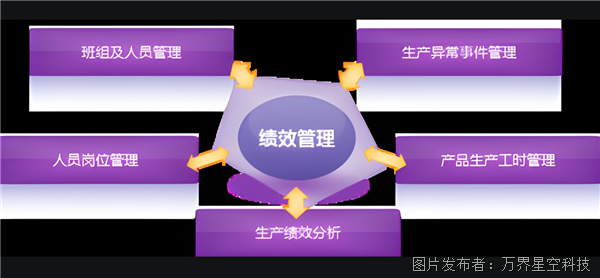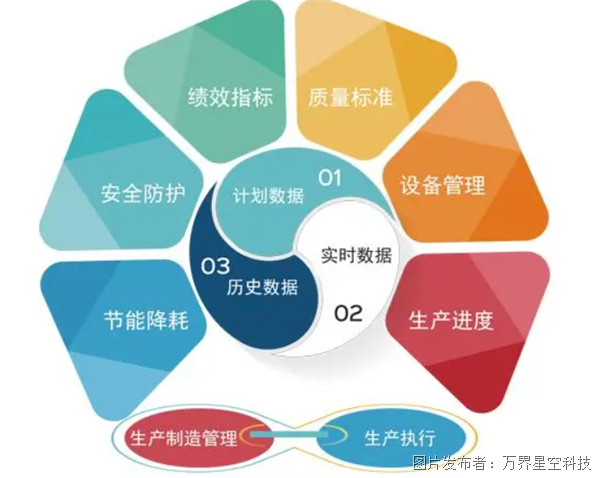In manufacturing enterprises, performance management is a crucial task. Through scientific and effective performance management, it can help enterprises improve production efficiency, optimize resource allocation, and enhance employees' enthusiasm, so as to achieve sustainable development. What is the performance management of manufacturing enterprises?
The performance management of manufacturing enterprises refers to the management process of evaluating, monitoring and improving various activities within the enterprise to achieve the expected production performance and operating benefits by setting clear goals and standards. It involves comprehensive control of production, quality, cost, delivery and other aspects to ensure that the enterprise can achieve the established strategic objectives.

Performance analysis is one of the important means to evaluate and measure the operation, efficiency and effect of a system. MES system( manufacturing execution system )As an information system integrating production planning, production execution and production data management, it plays an important role in modern manufacturing.
1. The performance analysis of the MES system needs to pay attention to various influencing factors. It includes the accuracy of production plan, the rationality of production schedule, equipment utilization, production efficiency, product quality, logistics process, etc. These factors directly affect the overall operation effect of the system and the performance indicators of the enterprise.
2. Performance analysis can be achieved by collecting and analyzing a large number of production data. The MES system can monitor various indicators in the production process in real time, such as equipment status, output, yield, etc. Through data collection and analysis, it can help enterprises find problems and bottlenecks in production, and take appropriate measures to improve in time, so as to improve efficiency and performance.
3. Performance analysis can also be achieved by developing appropriate performance evaluation indicators. Enterprises can develop a reasonable performance indicator system according to their own characteristics and objectives to evaluate the functions and performance of the MES system. These indicators can cover product quality, production efficiency, data accuracy, response time, etc. Through regular evaluation and comparison, problems can be found and improved in a timely manner.

Production performance analysis and optimization tool is an important part of MES system. Through data collection, analysis, evaluation, diagnosis, optimization and monitoring, it helps enterprises understand the problems and bottlenecks in the production process, and provides corresponding solutions. By properly using these tools, enterprises can improve their production efficiency, thus improving their competitiveness and market share.
1. Data acquisition
Production performance analysis and optimization tools need data collection first. Through the connection with production equipment and sensors, the MES system collects various production data in real time, such as production quantity, production time, equipment status, etc. These data will become the basis for subsequent analysis and optimization.
2. Data analysis
After data collection, the production performance analysis and optimization tool will analyze the collected data. It can analyze each link in the production process according to different indicators and algorithms, and find out the existing problems and bottlenecks. For example, it can analyze equipment productivity, production line downtime, product quality problems, etc., to help enterprises understand the optimization space in the production process.
3. Performance evaluation
Based on the results of data analysis, production performance analysis and optimization tools will evaluate production performance. It can evaluate the production process according to the set standards and objectives, and give corresponding performance indicators and scores. These indicators can include production efficiency, product quality, equipment utilization, etc. Through performance evaluation, enterprises can understand their own performance in the production process and find the direction for improvement.
4. Problem diagnosis
Production performance analysis and optimization tools can also help enterprises diagnose problems. When problems or abnormalities are found in the production process, it can help enterprises find out the root causes and causes of problems according to the results of data analysis. For example, when the downtime of equipment is too long, it can analyze the reason and duration of downtime to help enterprises find solutions to problems.
5. Optimization scheme
Through data analysis and problem diagnosis, production performance analysis and optimization tools can provide optimization plans. It can provide targeted solutions according to the characteristics of the problem and the requirements of the goal. For example, when equipment is found to be idle for too long, it can suggest adjusting the production plan and arranging production tasks reasonably to improve the utilization rate of equipment.
6. Performance monitoring
Finally, production performance analysis and optimization tools can monitor performance. It can monitor various indicators in the production process in real time and feed back the results to relevant personnel. Through performance monitoring, enterprises can timely understand changes and abnormalities in the production process and make corresponding adjustments and decisions to ensure the stability and continuous improvement of production efficiency.






